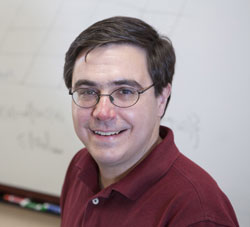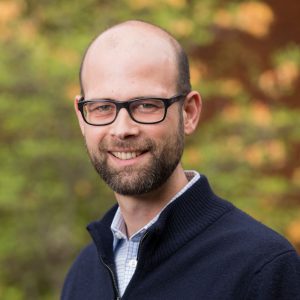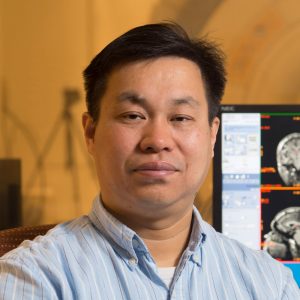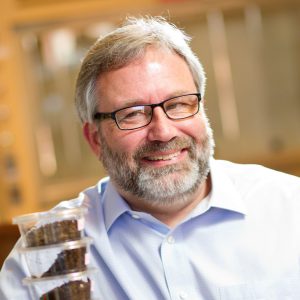Michael Usher
 Creative Research Medal 2014
Creative Research Medal 2014
Michael Usher, associate professor of mathematics, is recognized for his breakthrough development of a new tool known as “boundary depth,” which helps mathematicians working in the field of symplectic geometry better understand the intricacies of an important geometric space known as the group of Hamiltonian diffeomorphisms. While Usher’s contributions are in pure mathematics, the field of symplectic geometry was born from and is strongly tied to applications in physics. Hamiltonian diffeomorphisms of symplectic manifolds provide a unified perspective on the dynamics of physical systems according to the laws of classical mechanics. They are used to mathematically model those physical systems in which energy is preserved. Greater insight into these transformations has improved our understanding of turbulent fluid flow, the stability of the solar system, the foundations of quantum mechanics and many other phenomena. In a series of five papers, Usher helped settle many longstanding problems in this field, but he also introduced new concepts that help bridge gaps between fundamental mathematical theories.

 Creative Research Medal 2014
Creative Research Medal 2014 Distinguished Research Professor 2017
Distinguished Research Professor 2017 Distinguished Research Professor
Distinguished Research Professor tive Research Medal 2014
tive Research Medal 2014 Creative Research Medal 2014
Creative Research Medal 2014 Distinguished Research Professor 2015
Distinguished Research Professor 2015 Lamar Dodd Creative Research Award 2017
Lamar Dodd Creative Research Award 2017